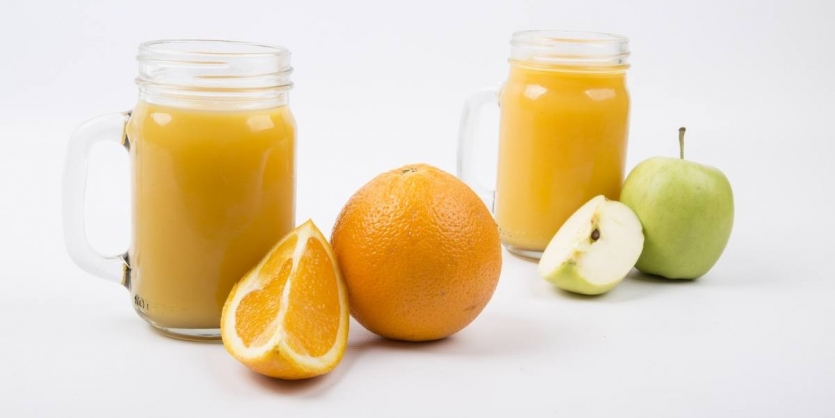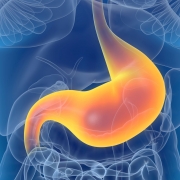Whole Fruit Versus Fruit Juice: You are What You Eat (and Drink)
 That’s an old adage. But what does it really mean?
That’s an old adage. But what does it really mean?
Basically, everything that makes up your physical body came in through your mouth. You are literally made-up of the things you consume—the good, the bad, and the ugly. So the sum of your diet, the water you drink, and your nutritional supplements make up you.
But that is only part of the story.
In a new study done at USANA Health Sciences and published in the journal “Nutrients”, scientists have shown that what you eat (or drink) can have a significant impact. It can actually affect how your genes are regulated—whether they are turned on or turned off.
Advantages of whole fruits and juices
Observational and epidemiological evidence shows consistently that consumption of fruit promotes good health. Eating whole fruits has generally been recommended by health experts as preferable to juice, although juicing and juice products are often seen as a part of a healthy diet plan.
Whole fruit has an advantage in weight control and glucose regulation due to its fiber content, and greater bulk and satiety. Juicing has some advantages as far as convenience, availability year round, rapid rehydration, and variety (people often get more variety in their fruit intake through juicing than they would otherwise get through whole fruits). Even with these differences, it has always been assumed that whole fruits and unprocessed juices are nutritionally equivalent.
New research shows whole fruit and juice affect health in different ways
New research by scientists at USANA Health Sciences, Inc. has uncovered another interesting difference between whole fruits and fruit juices. It turns out they may actually confer different health benefits by influencing health and the immune system in different ways. This study found that subjects who consumed whole fruit versus fruit juice had significantly different chemical signatures (known as methylation or the epigenome) on specific regions of their DNA.
Epigenetics is the study of changes in organisms caused by modification of gene expression rather than alteration of the genetic code itself. Epigenetic change is a regular and natural occurrence. But it can also be influenced by several factors including: age, the environment/lifestyle, and disease state.
One way to illustrate the meaning of epigenetics is with identical twins. Both twins possess identical DNA, or genetic code. But, they are not exactly the same, and differences become even more obvious with age. This is due to individual variations in diet, lifestyle, environment, disease state, and other factors that influence the way their cells read the genes.
In this study, the epigenetic signatures (the chemical code that allows genes to be turned off and on) of whole-fruit consumers were enriched in genes near specific pathways. These pathways were those associated with improved immune function, chromosome integrity, and telomere maintenance. But the same signatures of fruit-juice consumers were enriched around genes associated with pro-inflammatory pathways.
The authors point to the fact that whole fruit is rich in natural fiber as a reason for this difference. Fiber is removed during the juicing process.
“The epigenetic differences observed in our study may be attributable to variation in fruit fiber content between fruit and juice,” the study states. “Fiber, a largely indigestible molecule, alters the digestion rate of co-consumed nutrients and thus influences the intestinal location and mechanism by which fruit derived nutrients are absorbed and ultimately processed. Much of this variation in intestinal absorption is likely due to variation in breakdown of nutrients by intestinal microbiota”.
Conclusion
The paper goes on to conclude that, for the first time, juice and fruit consumption are correlated with different influences on gene expression. Additionally, the analysis shines new light on the molecular mechanisms that drive the interactions between our diet, target cell signaling molecules, and epigenetic pathways.
In a follow-up interview, senior author Dr. Robert Sinnott emphatically stated that “clearly eating whole fruit versus consuming fruit juice confers different health benefits. Giving children sippy cups of juice rather than cubed whole fruit are not nutritionally the same.”
Co-author Jessie Johnson, Ph.D. had this to say about the larger implications of the study: “Understanding how nutritional intakes from whole foods, to beverages, to nutritional supplements activate cell signaling pathways, modulate cellular physiology, and ultimately improve human health will be a major breakthrough in further personalizing individual nutritional needs.”
Traditionally, dietary nutrients have been looked at in a few different ways. They’ve been seen as building blocks for a protein, co-factors for enzymes, structural components of the body such as bones, or as individual antioxidants that help quench free radicals. But it is much more complicated than that. Dietary nutrients and compounds also influence the way our cells communicate, and how our genetic code is expressed.









